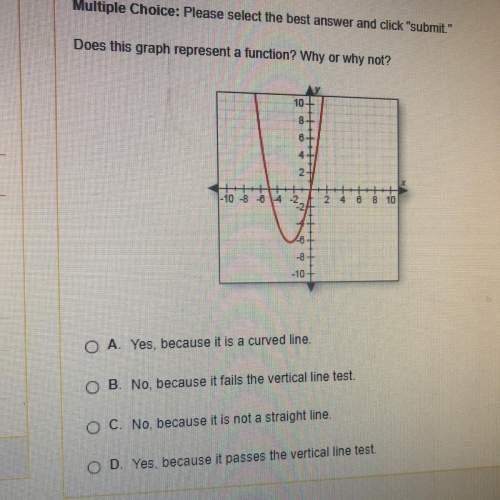
Mathematics, 16.09.2019 16:10 st23pgardner
Master theorem: t(n) = 3t(n/3) + o(log n)? hello, i've been trying to solve the bounds for the recurrence stated in the title: i know a = 3, b = 3, and f(n) = o(log n), n^log(a) of base b --> n^log(3) of base 3 --> n^1 = n. so i get θ(n). now i proceed to use case 1 of master theorem: if f(n) = o(n^log(a-e) of base b) for some constant e > 0, then t(n) = θ(n^log(a) of base b) since f(n) < n^log(a) of base b, asymptotically. i believe the solution should be θ(n) but where i am stuck is proving that f(n) is polynomially smaller, when using case 1, the ratio of f(n) / n^log(a) of base b: = log n / n, so that the solution θ(n) is true any with this is appreciated

Answers: 1


Another question on Mathematics


Mathematics, 21.06.2019 22:00
White shapes and black shapes are used in a game. some of the shapes are circles. while the rest are squares. the ratio of the number of white shapes to the number of black shapes is 5: 11. the ratio of the number of white cicrles to the number of white squares is 3: 7. the ratio of the number of black circles to the number of black squres is 3: 8. work out what fraction of all the shapes are circles.
Answers: 2

Mathematics, 22.06.2019 00:30
Me i’m stuck on all these questions besides the two bottom ones
Answers: 2

Mathematics, 22.06.2019 04:30
The population in a city is modeled by the equation p(d)= 100,000*(1+0.3) where d is the number of decades since 1970
Answers: 1
You know the right answer?
Master theorem: t(n) = 3t(n/3) + o(log n)? hello, i've been trying to solve the bounds for the rec...
Questions


Mathematics, 06.05.2021 02:10


Chemistry, 06.05.2021 02:10

Mathematics, 06.05.2021 02:10

Mathematics, 06.05.2021 02:10

Mathematics, 06.05.2021 02:10

Mathematics, 06.05.2021 02:10




English, 06.05.2021 02:10


Mathematics, 06.05.2021 02:10


Mathematics, 06.05.2021 02:10



Health, 06.05.2021 02:10

Mathematics, 06.05.2021 02:10




